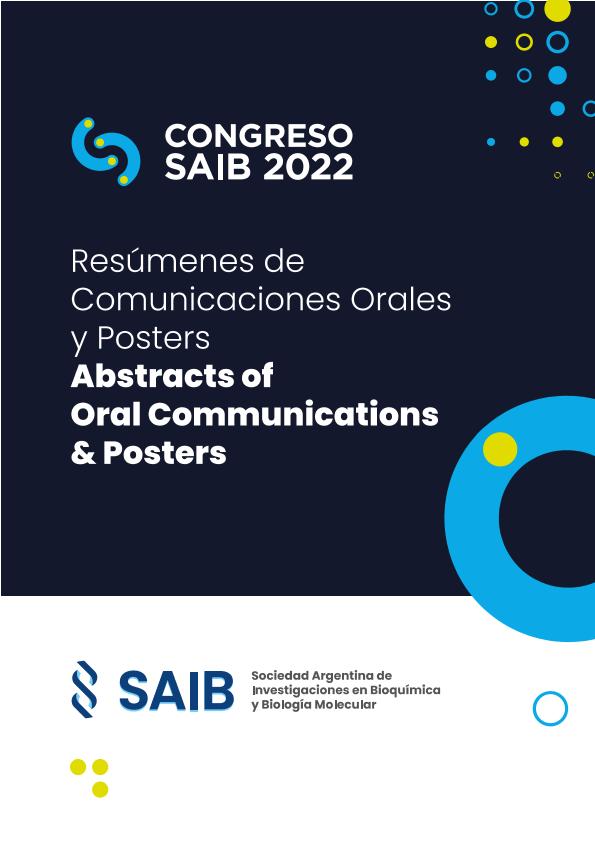Evento
FPR2/ALX signaling and their lipid mediator pathways: pleiotropic roles in neurotoxicity
Tipo del evento:
Congreso
Nombre del evento:
Congreso LVIII Sociedad Argentina de Investigaciones en Bioquímica y Biología Molecular 2022
Fecha del evento:
09/11/2022
Institución Organizadora:
Sociedad Argentina de Investigaciones en Bioquímica y Biología Molecular;
Título de la revista:
Sociedad Argentina de Investigaciones en Bioquímica y Biología Molecular
Editorial:
Sociedad Argentina de Investigaciones en Bioquímica y Biología Molecular
Idioma:
Inglés
Clasificación temática:
Resumen
Neurotoxicity generated by several environmental factors has been widely associated with Parkinson’s disease (PD). Human prolonged exposure to the pesticide Maneb (MB) has been reported as a triggering insult for dopaminergic neurodegeneration and the onset of PD. Even though this effect has been well documented in numerous epidemiological and research studies, little is yet known about the mechanisms underlying MB neurotoxicity in neuron-glia crosstalk. Based on our previous reports about the involvement of cyclooxygenases (COX) and lipoxygenases (LOX) in the neuronal response to MB toxicity (SAIB2021), our aim was to elucidate the role of these lipid mediators’ pathways in neuron-glia communication. To study the possible alterations in neuron-glia crosstalk caused by MB exposure, dopaminergic N27 cells were exposed to astrocyte (C6 cell line) secretome and vice versa. Astrocytes’ secretome showed to be neuroprotective against MB, whereas neurons secreted glial proliferative factors after pesticide exposure. Neither COX-2 nor CYP450 pharmacological inhibition were able to revert the effect of secretomes on their respective acceptor cells. In contrast, the inhibition of LOX-15, enzyme responsible for the generation of anti-inflammatory lipid mediators, abolished the glial proliferative effect of neuronal secretome during MB toxicity. In addition, the neuroprotective effect of astrocyte-derived secretome was blocked. Next, we evaluated the role of FPR2/ALX receptor, whose main ligands are lipid mediators associated with resolution. The antagonist of FPR2/ALX, Quin-C7, blocked the effect of the astrocytic secretome on neuronal survival upon MB challenge. In agreement, FPR2/ALX activation by a specific agonist enhanced the neuroprotective effect of the astrocytic secretome. To determine the role of FPR2/ALX downstream signaling, cells were incubated with PI3K and ERK1/2 pharmacological inhibitors, After MB exposure, neuronal and astrocytic viability was nondependent of ERK1/2 activation. On the contrary, the blockage of PI3K showed to increase pesticide-induced cell death. Moreover, ERK1/2 phosphorylation was diminished by MB in both cell types. Interestingly, we found that the astrocyte proliferation caused by the secretome derived from MB-exposed neurons was mediated by ERK1/2 activation. Our results suggest that FPR2/ALX signaling and their lipid ligands are involved in the neuronal-glial crosstalk during MB exposure. These findings pay the way for interventions aimed at enhancing the resolution response during pesticide-induced neurotoxicity.
Palabras clave:
Neuron-astroglia crosstalk
,
Neurotoxicity
,
Resolvins
,
Maneb
Archivos asociados
Licencia
Identificadores
Colecciones
Eventos(INIBIBB)
Eventos de INST.DE INVEST.BIOQUIMICAS BAHIA BLANCA (I)
Eventos de INST.DE INVEST.BIOQUIMICAS BAHIA BLANCA (I)
Citación
FPR2/ALX signaling and their lipid mediator pathways: pleiotropic roles in neurotoxicity; Congreso LVIII Sociedad Argentina de Investigaciones en Bioquímica y Biología Molecular 2022; Mendoza; Argentina; 2022; 87-88
Compartir




